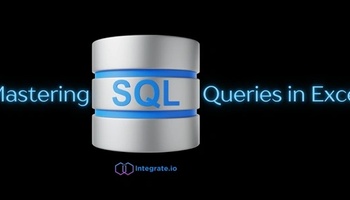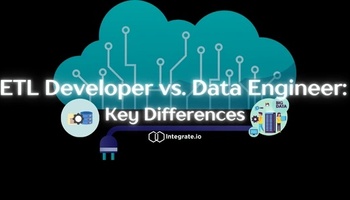In general, the concepts of data literacy and creating successful data pipelines seem totally disconnected. Data literacy involves insuring that data consumers have the knowledge and capabilities to understand and interact with data in a way that will provide them with the answers and value they need to do their jobs and benefit their organizations. While data pipelines require technical expertise to move, connect, and store data across the company's data ecosystem.
One involves those who use data for business insights, while the other requires knowledge of data movement and API management. Basically, building data pipelines and managing data so that others can leverage analytics and gain visibility into general performance of the organization across business domains should go hand in hand.
From my perspective, these two disparate items are very intertwined. Without a holistic approach to data management, organizations fall behind. To succeed with data, organizations need:
- The right people with the right skills
- Visibility into the data ecosystem and supplier, customer, and partner networks
- An understanding of how data interconnects
- An understanding of how data is consumed
- Clear, concise, and defined metrics that are agreed upon by leadership
- Strategic goals aligned to tangible business outcomes
- Collaboration across departments to ensure business domains are defined and that definitions are agreed upon
Each of these factors requires a technology and business outlook to succeed, and the more literate data consumers are, the better able they will be to communicate their needs to data teams. And the more able data teams will be able to build the right pipelines to enable data consumption.
Enabling Data Literacy for Better Collaboration with Data Teams
As more people within the organization consume data, data pipeline needs will also become more complex because different teams will have different needs that will require a variety ways of accessing and analyzing data. Higher levels of data literacy among data consumers enables better communication with data teams because people grow to understand what their needs are, how to leverage the systems they have, and communicate what data they are accessing and what their requirements are for ongoing and future consumption.
This link creates the framework for better overall data strategies across business domains.
At the same time, an organization needs to commit to data literacy and training to make sure that data consumers have a strong understanding of their data needs.
This can be accomplished by:
- Formalizing a data literacy strategy and creating a program for different types of data consumers
- Evaluating the needs of data consumers according to their current level of comfort with analytics
- Providing regular lunch and learns and other education opportunities
- Creating a cross-functional team that includes data teams to ensure that greater understanding between the needs of consumers and the need of data teams is created
- Linking business outcomes with data management and pipeline development needs
Simplifying Data Pipeline Complexities
Better collaboration between teams across the organization can help data teams create and deploy the right pipelines faster. As organizations mature in their analytics requirements and as more data is moved between systems, data complexities will increase. Enabling better literacy provides greater support for data teams as their jobs become more complex and diverse.











